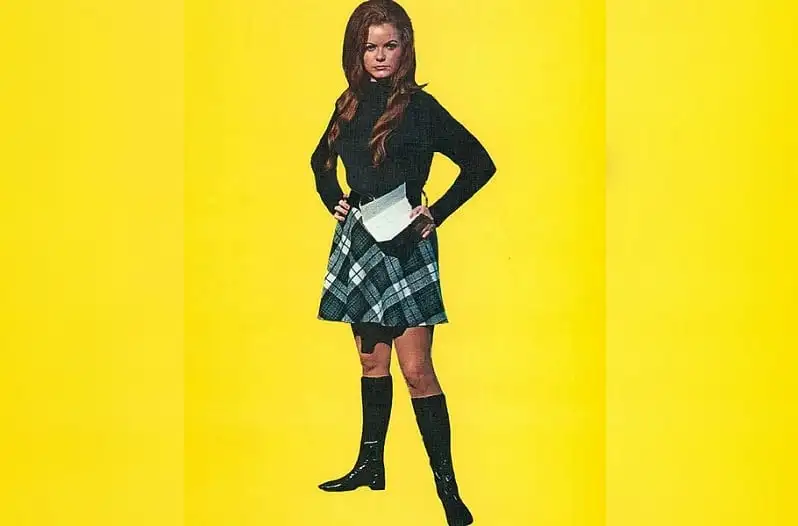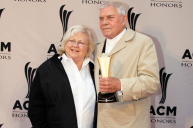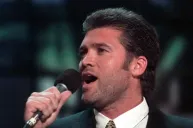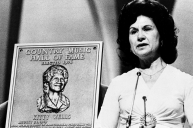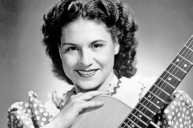One of popular music's greatest overnight success stories unfolded in Sept. 1968 for country singer Jeannie C. Riley (born Jeanne Carolyn Stephenson). Her feisty version of songwriter Tom T. Hall's"Harper Valley PTA," a song recorded earlier in the year by Margie Singleton, topped the country charts and the Billboard Hot 100 pop charts. She was the first female to claim a pop and country No. 1 with the same song, a feat not repeated until Dolly Parton's 1981 smash "9 to 5."
Videos by Wide Open Country
Released in August by Shelby Singleton's Plantation Records, the single's swift success wasn't unprecedented in its time. A year prior, Bobbie Gentry's "Ode to Billie Joe" transcended the commercial limitations of country music and surpassed the Beatles on the pop charts.
Similarities between "Ode to Billie Joe" and "Harper Valley PTA" may run even deeper. Per Songfacts, Hall was asked by Margie Singleton to write a song similar to Gentry's smash hit, with inspiration for its title coming from Harpeth Valley Elementary School in Bellevue, Tenn. Even if that's true, the song's lyrics are not exactly a step-by-step retracing of Gentry's go-go boot steps. While "Ode to Billie Joe" told a swampy Delta blues mystery, "Harper Valley PTA" allowed its singer to vent about society in no uncertain terms.
In a year filled with political strife and student protests, Nashville, Tennessee underwent a seismic shift of its own. No. 1 hits sang by women that year included Loretta Lynn's defiant "Fist City" and Tammy Wynette's taboo "D-I-V-O-R-C-E." If the listening public accepted those songs, they were sure to embrace Hall's railings against small-town hypocrites through the eyes of Mrs. Johnson.
Plus, small-town storytelling always seems to press the right buttons for country listeners. These stories can be positive like Alabama's "High Cotton," negative like "Harper Valley PTA" or somewhere in between, like Dolly Parton's "The Good Old Days (When Times Were Bad)." In Riley's case, the Anson, Texas native made the audience for such songs smile as the holier-than-thou types at church on Sunday--or at the PTA board meeting on its scheduled weeknight--get their comeuppance from a bullied single mother.
Beyond its Grammy Award-winning (Best Country Vocal Performance- Female) title track, the Harper Valley PTA album features the frantic "Mr. Harper" and Hall's sordid tale of how "Widow Jones" seduced every young man in town.
Future country songs of note, including "The Girl Most Likely," "Country Girl" and "Good Enough to Be Your Wife," failed to match Riley's early career success. Which is a shame, considering the lyrical depth of singles like 1969's "The Rib"--a feminist-friendly Biblical analogy that reminds listeners that women were made to stand side-by-side with men, not as "a foot bone to be stepped on, a leg bone to be walked on or a hip bone to be sat on."
Read More: Looking Back On Connie Smith's Incredible Country Music Career
The song, about the junior high-school daughter of the widowed Mrs. Johnson, maintained enough cultural relevance to make it to Hollywood with a 1978 television movie starring Barbara Eden and, later on, a television series of the same title. By then, Riley had moved away from her massive pop hit and worked as a gospel singer. In 1980, her autobiography, From Harper Valley to the Mountaintop, told the story of her career and her testimony as a born-again Christian.
Watch Riley perform her signature song at the Grand Ole Opry below.
This post was originally published on September 28, 2018.
Now Watch: Songs Every Reba McEntire Fan Knows By Heart
https://rumble.com/embed/u7gve.v4ubub/
